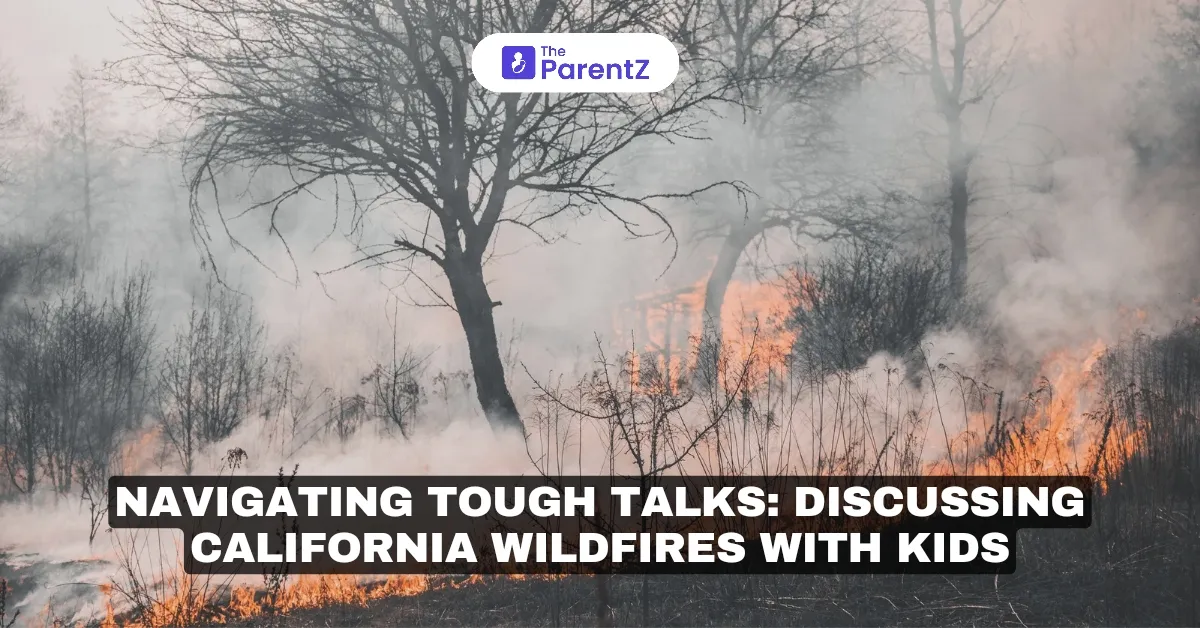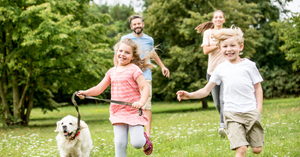When natural disasters like wildfires affect our communities, children often struggle to process what's happening around them. As parents, we have the important task of helping our little ones understand these events while keeping them feeling safe and supported. Here's how we can have these conversations in a gentle, reassuring way.
Start with a Safe Space
Before diving into any discussion about wildfires, create a comfortable, quiet moment with your child. Maybe it's during bedtime stories, or while drawing together at the kitchen table. Let them know it's okay to talk about things that worry them, and that you're there to listen and help.
Listen First, Talk Second
Children often have their own understanding of what's happening, and it might surprise you what they've already picked up. Start by asking simple questions like, "What have you heard about the fires?" or "How do you feel about what's happening?" Their answers will help guide your conversation and address their specific concerns.
Keep it Simple and Age-Appropriate
For younger children (ages 4-7), you might say something like: "There are some big fires in our area right now, and lots of grown-ups are working very hard to keep everyone safe. That's why we might see firefighters around or why some of our friends might be staying somewhere else for a little while."
For older children (ages 8-12), you can provide more context: "The fires are happening because of very dry and windy weather. Our community has plans for these situations, and there are many brave people working together to protect everyone."
Focus on Safety and Helpers
Children feel more secure when they know there's a plan. Talk about all the helpers in our community: "Look at all the firefighters working to put out the fires. See how the teachers are making sure all the students have a safe place to learn? And notice how neighbors are helping each other take care of their pets? During tough times, people come together to help each other."
Address Their Specific Worries
Some children might worry about their friends, their school, or their pets. Validate their feelings: "It's okay to feel worried. I sometimes feel worried, too. But we have plans to keep everyone safe, including our pets." Share your family's emergency plan in a calm, matter-of-fact way.
Empower Them to Help
Children often feel better when they can take action. Suggest age-appropriate ways they can help: "Would you like to draw pictures for the firefighters? We could also pack some care packages for families who had to leave their homes or help collect supplies for pets at the shelter."
Maintain Routine and Normalcy
During uncertain times, routine provides comfort. Keep regular mealtimes, bedtimes, and activities when possible. If schedules need to change, explain why calmly: "Today we're going to try something different because of the fires, but we'll get back to our usual routine as soon as we can."
Watch for Signs of Stress
Some children might show their worry through changes in behavior - trouble sleeping, extra clinginess, or becoming withdrawn. These reactions are normal, but if they persist, consider reaching out to a school counselor or child psychologist for additional support. For more comprehensive guidance on discussing challenging topics with children, you might find our article on How to Talk to Kids About World Events helpful.
End with Hope and Reassurance
Conclude conversations on a positive note: "Even though this is a difficult time, our community is strong. We're taking good care of each other, and things will get better. I'm always here if you want to talk more."
Remember, these conversations might need to happen multiple times as the situation evolves. Stay patient, keep checking in with your child, and remember that your calm presence is their greatest source of comfort during challenging times.
Conclusion
By approaching these discussions with sensitivity and care, we can help our children develop resilience while feeling supported and understood. Remember, you know your child best - trust your instincts about how much information they can handle, and don't hesitate to seek additional support if needed.








